Finding Repurpose With Older Buildings in Charlottesville, VA
A comeback story for the ages...Industrial venues are being revitalized into community and commercial venues in Charlottesville, VA.
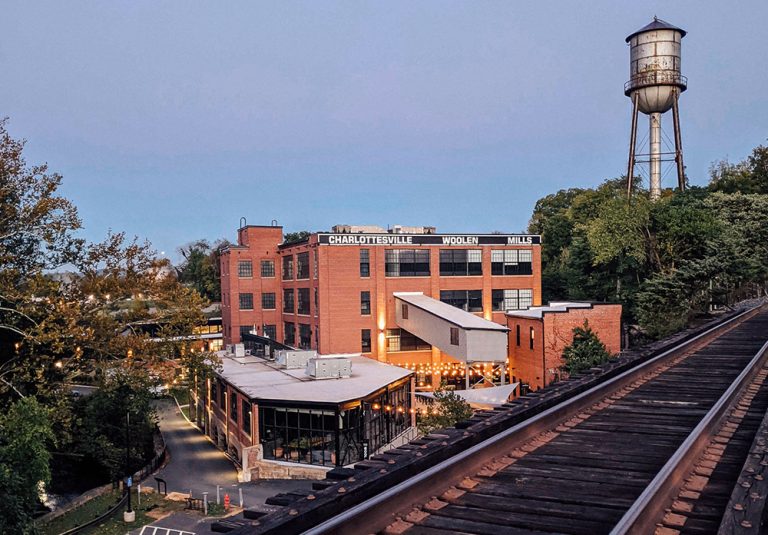
Charlottesville is experiencing a new sense of community through something that’s concrete, or in one case, made with brick. Within this Virginian city, developers have been giving buildings that once held longtime industries a second purpose as places for building community.
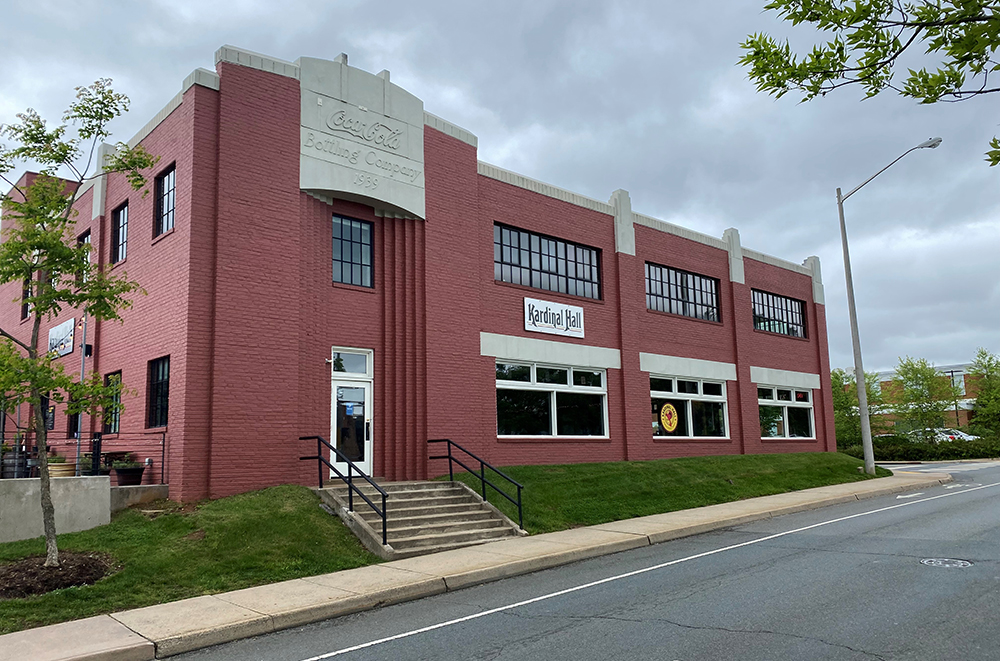
In This Article
Coca-Cola Building
Built in 1939, this two-story Art Deco brick-faced factory was a bottling plant until 1973 and then used as a distribution center until its closure in 2010. General contractor Martin Horn completely renovated this 38,000-square-foot building in 2015. Its Coca-Cola sign and cornice were kept intact, along with saving tiles from a room said to once secretly hold the recipes for the famous soda’s syrups.
In the present day, the Coca-Cola Building houses commercial and office tenants, including Blue Ridge Cyclery, a bicycle shop; Juice Laundry, a juice shop; Pineapples Thai Kitchen, a restaurant; and Kardinal Hall, an Alpine-inspired bier hall and biergarten. Brothers Josh Hunt and John Woodriff, also behind Beer Run, a Charlottesville restaurant and shop, opened Kardinal Hall in 2015. According to Hunt, there’s a part in the building “where it still has the original floors, which are a red terrazzo [and] which is pretty beautiful stuff.”
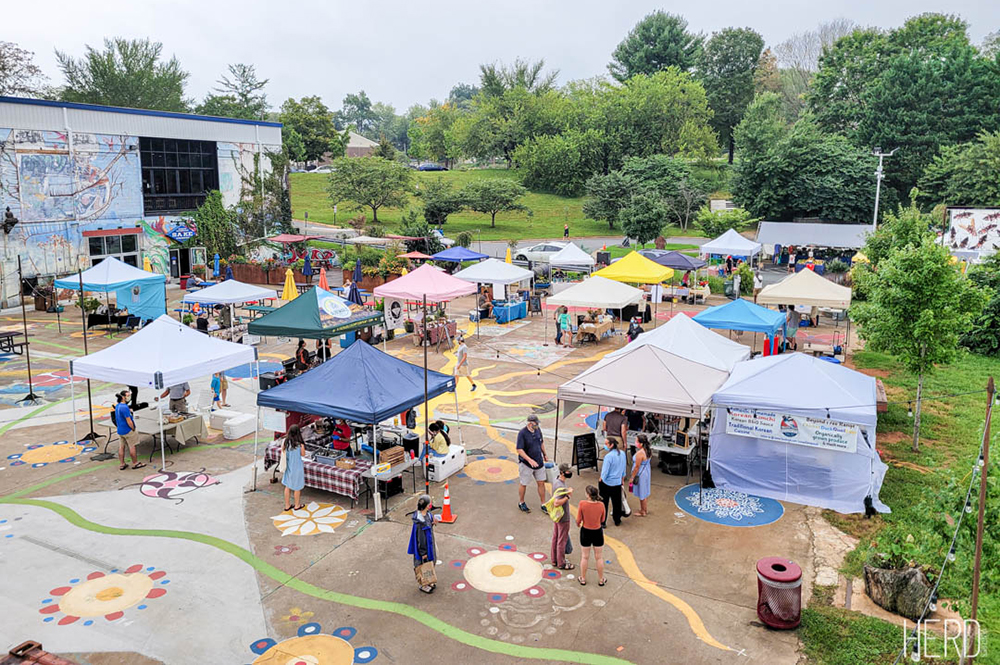
Ix Project
This mixed-use project near Charlottesville’s Downtown Mall was originally the Frank Ix and Sons Textile Factory, a firm that came to Charlottesville in 1928. In its heyday, a major producer of unfinished fabrics, the factory dwindled down due to the domestic industry’s decline and ceased in 1999. Today, its successor is Ix Project. Named for the family business, the 17-acre complex holds television production, food and beverage, nonprofits, and retail businesses. Among its tenants is Ix Art Park Foundation, a nonprofit arts organization offering classes and community projects to encourage everyone’s creativity.
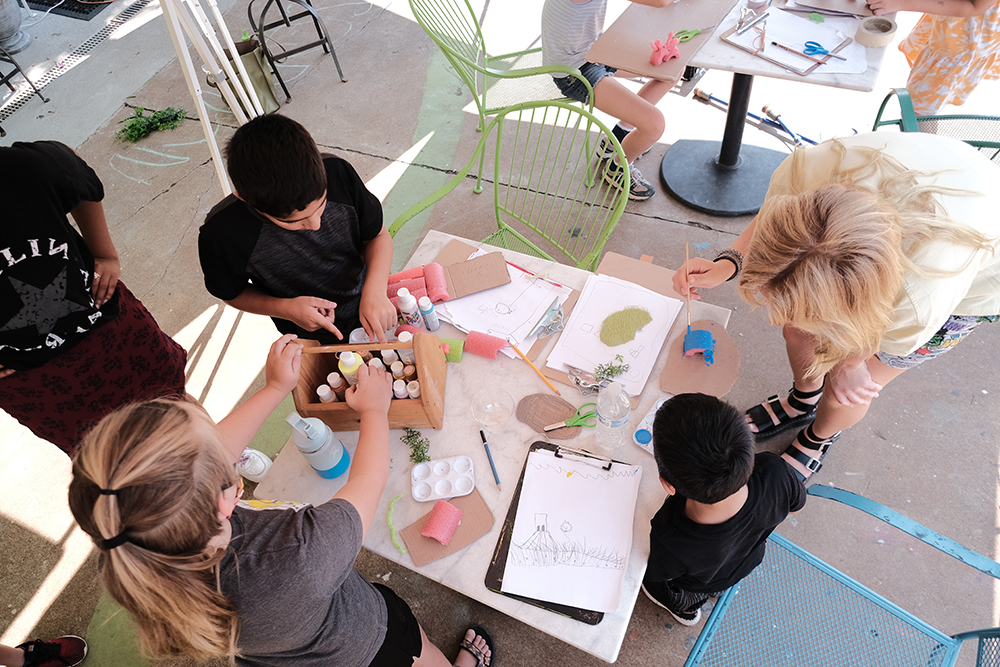
Ix Art Park Foundation’s Executive Director Alex Bryant has lived in Charlottesville for a decade and has seen the property in different stages over time. “When I came on, it was really with this understanding of how do we create creative ecosystems for our city that are impactful and concrete lasting change,” said Bryant. “So what we’re trying to do here is create a place that allows for different communities to interact and to collide.”
Ix Art Park manages The Looking Glass, an immersive art experience with installations created by Charlottesville residents. The park’s grounds also include exterior artist murals and sculptures and host concerts, dance performances and film showings, plus a farmer’s market.
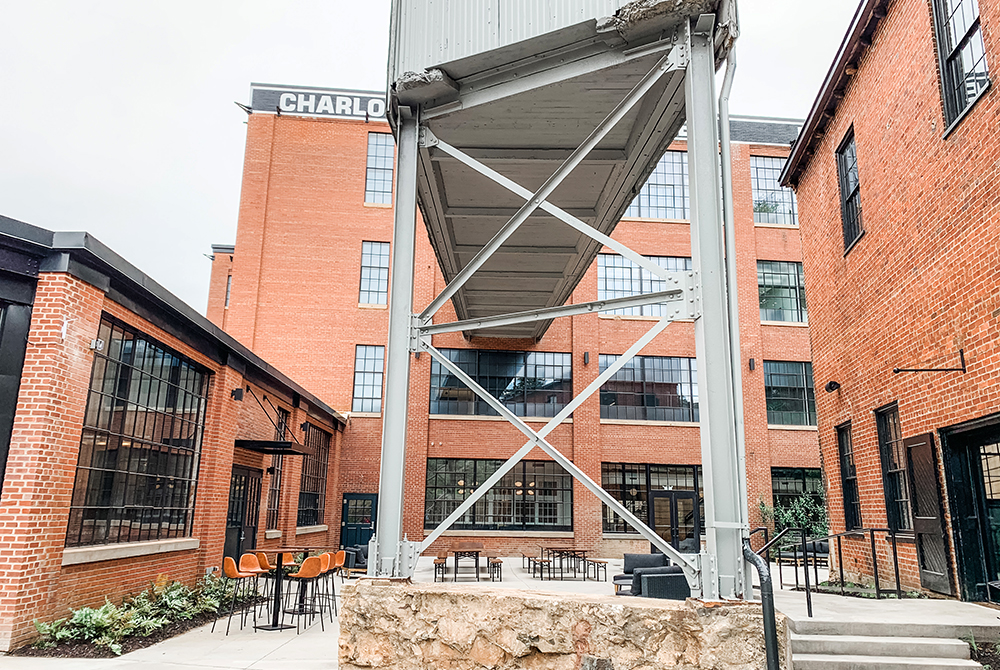
The Historic Woolen Mills
This mill was also part of Charlottesville’s textile industry. Following a precursor mill that burned down after the Civil War, the Charlottesville Woolen Mills was incorporated in 1867 and grew into a major uniform manufacturer. However, as the years went by, the mill’s fortune changed, and it was subsequently shut down in the sixties.
Bought in 2017 by WM Development, the 100,000-square-foot property went through a redo starting in 2019, with all on-site buildings being renovated. The concept for the restoration of The Historic Woolen Mills had several iterations. Eventually, it was shaped by two long-term tenants, WillowTree, a digital agency, and The Wool Factory, a 12,000-square-foot hospitality destination with a brewery, a coffee/wine shop and a restaurant. The latter opened in July 2020 with functional upgrades while keeping its existing trim and wood floors when possible and repurposing original warehouse pendant light fixtures.
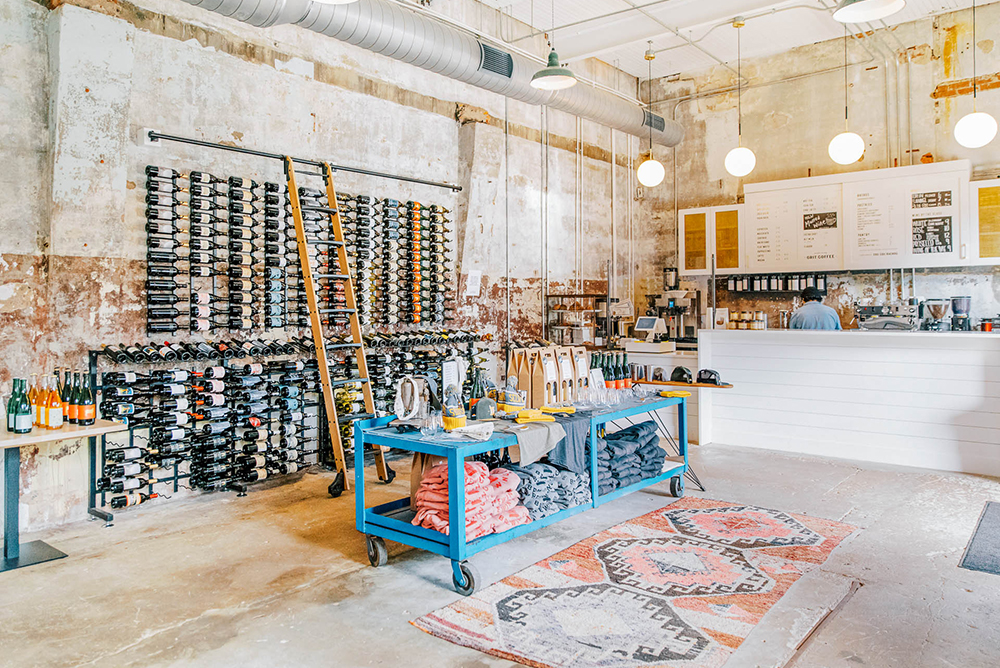
“Charlottesville is a city full of amazing breweries, wineries and restaurants that had all of the above — and we did it,” said The Wool Factory’s Partner and Chief Brand Officer Brandon Wooten. “The Workshop has some of Virginia’s finest wines, Selvedge Brewing boasts a selection of delicious beers and great eats, and Broadcloth features a distinct bar program, excellent wine list, and an inspired menu by Executive Chef Tucker Yoder.”
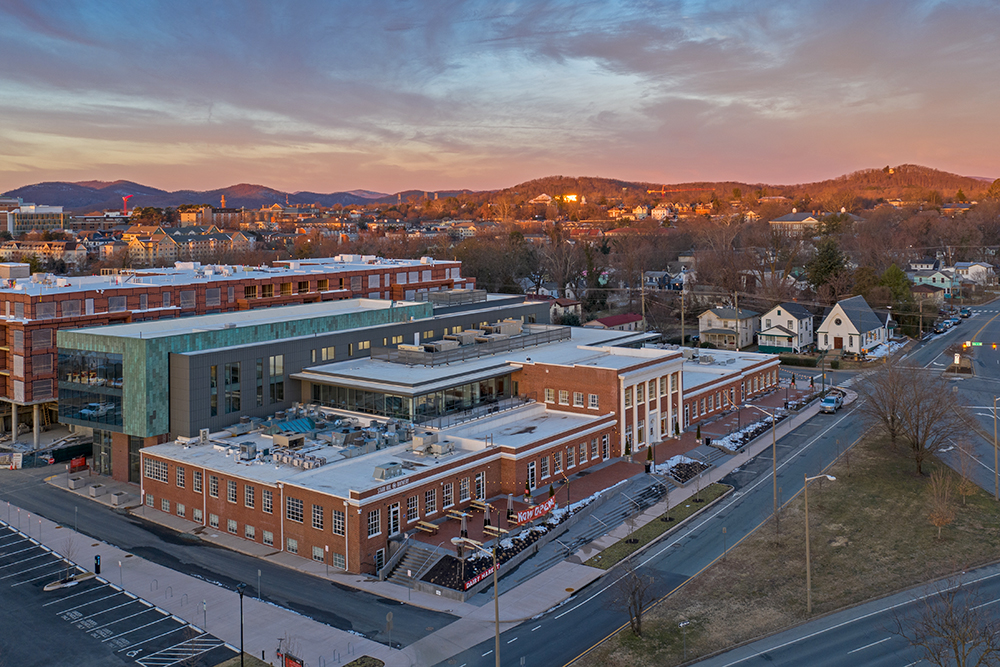
Dairy Market
With its grand opening in June 2021, the Dairy Market in downtown Charlottesville was the former location for the Monticello Dairy. A hotspot in its heyday, from the 1930s until the 1960s, the building was the place for the production and distribution of dairy milk, butter and ice cream.
“The Monticello Dairy is an iconic building in town,” said John Pritzlaff, senior vice president at Cushman & Wakefield | Thalhimer, which handled the property’s original leasing and now overlooks its overall management. “It has a great facade, and it lends itself very well for [a] food hall use because it has decent high ceilings; it has good bones.”
Jenny Stoner, first vice president at Cushman & Wakefield | Thalhimer, said that the firm was quite fond of the dairy because it was central to Charlottesville. “And we wanted to make it a gathering place to help support some of the other future developments in and around that area.”
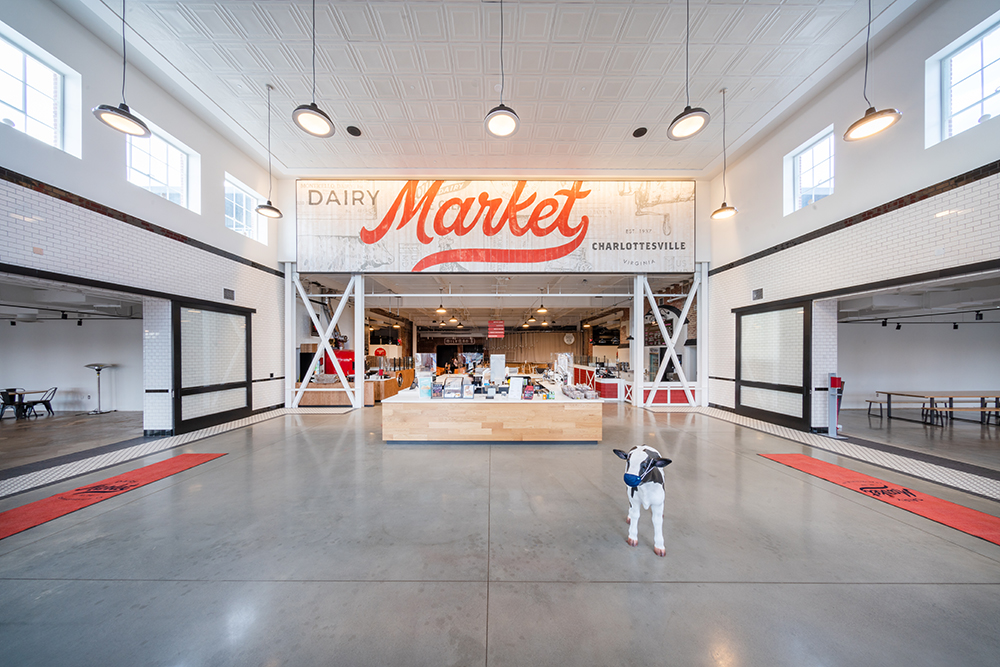
Certain building sections were retained because of their good condition. For example, the main entrance was kept intact, but one of the two original stories was removed to create a grand hall within the market’s middle section. “We basically built a new building inside the old building about twenty-five feet back from the entrance,” said Pritzlaff.
As Charlottesville’s first food hall, the Dairy Market holds 18 vendors. They include Charlottesville’s Starr Hill Brewery; Moo Thru, a creamery and ice cream store based in Remington, VA; and The Milkman’s Bar, a cocktail bar by the Ten Course Hospitality Group that reflects an Americana drugstore soda fountain persona.
The market also is part of Dairy Central, a multi-use center comprising 33,000 square feet of retail and restaurant space, 53,000 square feet of office space, an 8,740 square feet of event space and 180 one- and two-bedroom luxury apartments.
